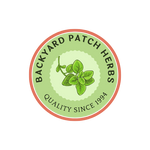Summer cooking can be a drag. You don't want to heat up the kitchen, but you also want good flavors and the ability to have leftovers so you don't have to cook all the time.
Enter the meat rub! Meat rubs upgrade the flavor of meats and proteins, don't require too much effort and allow you to cook in large batches creating leftovers.
What really makes a rub a rub is how it is applied. I suppose that you could say sprinkling salt and pepper over a steak was like adding a rub, but this really isn't what we mean when we talk about rubs, particularly a traditional barbecue rub. A rub should coat the surface of the meat. You should work a rub evenly into the meat to get the flavor to penetrate as much as possible.

Rubs come in two varieties, wet rubs and dry rubs. A dry rub is made of herbs and spices and can be either sprinkled over meat or actually rubbed in. You are replying on the moisture in the meat to keep the rub on. A wet rub contains a liquid ingredient, usually oil and is coated over the surface of the meat. The advantage of a wet rub (or paste) is that it sticks to the meat better. This is particularly important if you are cooking poultry with the skin on or some other smooth surfaced meats or meats that tend to be naturally dry. The other advantage of a wet rub is that it can help keep meat from drying out. This is especially true when using an oil based rub. The oil acts as a moisture barrier, keeping the natural juices inside the meat. Oils in rubs can also keep meats from sticking to the grill. Remember that a wet rub should have the consistency of a paste, thick.
Beyond this, practically anything goes. What you want in your rub is really a matter of personal taste. You want a good rub to add flavor and color but you don't want it to overpower the flavor of the meats you are rubbing. You want to enhance the flavor of the meat without overpowering it, so a good rub will be a mixing of strong spices with mild, complimentary ones to create an even distribution. If you're going for a hot spice combination, chose a blend with chili powder, cayenne or paprika. It will give the meat a good color and add the level of heat you want without making the meat too hot to eat.

As I said, a rub should be worked into meats completely. If you are applying a rub to poultry try and get it in under the skin. Skin blocks flavors so putting a rub on the surface of skin won't do much for the meat. If is also good to apply your rub well before you plan to grill or smoke. A good hour will be enough in most cases, but large roasts, whole poultry, or briskets should be rubbed down the night before or at least several hours before hand. This allows the seasonings to mingle with the natural juices of the meat and sink in. Dusting a pork chop with a rub seconds before it hits the grill will result in a well flavored set of burners and a good supply of smoke from burning spices. It won't add a lot of flavor to the chops.
Herb Mixes from the Backyard Patch include a number of savory and spicy herb rubs. Although formulated to be used dry, several can be mixed with oil to create a wet rub. Your choices include:
BarbeQue Spice Rub - This can be used as both a wet and a dry rub as well as a ketchup-based sauce.
Grilled Meat Rub - Can be used dry as a rub or added to vinegar and oil as a marinade. The blend is entirely herbs with no spices so it is great in hamburgers, and on chicken and tofu.
New Orleans Spirit - A spice mixture with a New Orleans or Jerk flare
Paprika Chicken Rub - designed for Chicken it has a mildly spicy flavor
Four Spice Meat Rub -- A classic blend given an herb pick-me-up to use for grilling and marinades.
Mint Meat Rub - uncommonly good combination of spices and mint to create a grilling blend great for venison, ground beef burgers and turkey burgers.

